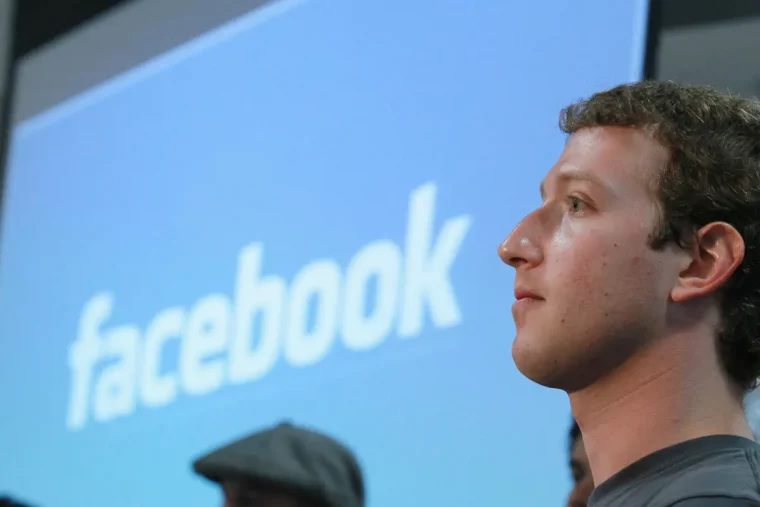
Tik Tok has been growing more popular recently, as well as many other social media applications. Unfortunately, this has meant that hegemons have been losing market share and popularity, as Facebook falls out of the top 10 most downloaded apps 97x in 2022 thus far.
The most significant factor in this decline is a changing consumer preference between generations, with younger generations opting for newer and more tailored social media apps that provide more instant gratification.
According to Tech Crunch, Facebook fell out of the top 10 most popular apps on the US iOS store in 2021, but has already done so 97 times in 2022.
Why else might Facebook be losing popularity?
Facebook’s reputation has been irreversibly tarnished over the past few years as they have become embroiled in scandal after scandal.
Overt political censorship, shadow profiles, selling data to Cambridge Analytica, and whistleblowing reports are many of the reasons that people are choosing to opt out of Facebook.
As a result, it’s not just that there’s more competition (including apps owned by Meta like Instagram), but also that Facebook’s reputation is damaged, leading people to look for other apps. This shift is even seen in older generations, who are increasingly unhappy with Facebook.
It is thanks to these concerns that more privacy-centric applications have surged in popularity too, acting as a counterbalance to the Metas and Tik Toks of the world. WhatsApp, Telegram and Signal are all becoming far more popular.
Data concerns with competitors are worse
The rising star in the world of social media and entertainment apps over the past few years has been Tik Tok.
The app, which is incredibly popular amongst the younger generation, is typified by an endless chain of short videos that are curated to each user’s preferences depending on what the algorithm thinks they’ll enjoy.
The magic of Tik Tok is in the algorithms themselves; the algorithms track and tailor what is shown to each user based on how long they look at particular videos, who they follow, their keystrokes both within Tik Tok and outside the app, which other apps the user has downloaded, search histories, etc.
The algorithms are designed to come to know all of their users and to build up character profiles for them. They can even probabilistically determine the same user twice on a different computer by linking locations and IP addresses.
So extensive are Tik Tok’s infringements on privacy that many are extremely concerned about the application, and there have been many calls to ban it as a means of national security, given that the app is owned by the CCP. India has already banned Tik Tok for this exact reason.
The way that Tik Tok is used to change and alter perceptions around particular issues of the day is increasingly important, and those who control the algorithms have extroardinary power.
Although the app is not banned in China, there are mandates from the state that a specific percentage of videos must encourage positive community values. Whereas in the West there are no such mandates and one can scroll for hours without coming across anything particularly enlightening, in China there are constant insertions of videos about eating healthy, lifting weights, supporting the community and studying hard.
The decentralisation of social media
In social media, it is becoming clear that there is no “one size fits all”, and that people may in fact use several different applications. After all, different apps are tailored to meet different needs.
LinkedIn has a more formal touch, Instagram is more personal, Twitter is for quickfire blasts of information in a public square, and Discord is for establishing and running more complicated communities and organisational structures than Telegram or Reddit are suited for.
In the same way that mainstream media has become growingly fractured over the past few years, and more independently-driven content creators occupy a greater share of the market,
Other social media giants of the past decade, such as Twitter, are becoming more fractured in their userbase and losing market share for other reasons. The website has grown to such a scale that they (like Facebook) are under a lot of pressure from different jurisdictions to manage the platform in different ways.
This has inevitably created a conflict in which a lot of their users feel alienated that the platform has become so politicised – it could even be argued that they have become victims of their own largesse.
It isn’t the end for Zuckerberg’s empire
The fact that Facebook itself may not be as popular as it once was does not mean that Meta is suffering. The parent company also owns Instagram, WhatsApp, and a variety of other companies both in the space of social media and outside it.
Zuckerberg’s announcement that the company would grow to become more focused on the metaverse in the future demonstrated an intention to stay as relevant as ever, and to go further in digitising the human experience.
In terms of profits and revenues, the relative decline in market share doesn’t appear to be too much of a problem for Facebook either, as the company reported profits of $117 billion in 2021 alone.
Relevant news:
- Meta Brings Out New Reels Features for Instagram and Facebook (business2community.com)
- Facebook is Being Abandoned By Teens – Why That’s a Headache for Meta (business2community.com)
Tamadoge - The Play to Earn Dogecoin
- '10x - 50x Potential' - CNBC Report
- Deflationary, Low Supply - 2 Billion
- Listed on Bybit, OKX, Bitmart, LBank, MEXC, Uniswap
- Move to Earn, Metaverse Integration on Roadmap
- NFT Doge Pets - Potential for Mass Adoption